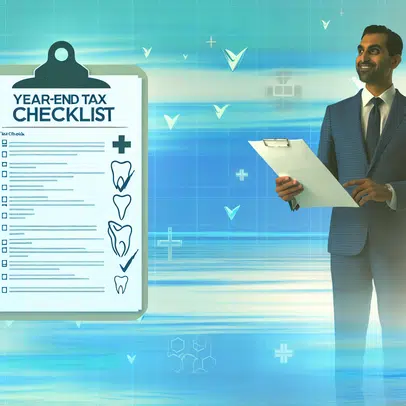Why Even Successful Dentists Get Taxes Wrong
Running a dental practice is no small feat. Between patients, payroll, and compliance, taxes can easily slip down the priority list. But as Jay Malik often says, “Saving money on taxes isn’t about making less—it’s about planning smarter.”
Every year, we see dentists overpaying or triggering audits due to avoidable errors. Let’s walk through the most common tax filing mistakes and how you can steer clear of them.
1. Mixing Personal and Business Expenses
Blurring the line between personal and professional expenses is a mistake that can cost you.
- Using the business card for personal dinners
- Claiming personal vehicle use as a 100% business expense
- Failing to separate home office deductions correctly
Not only can this raise red flags, but if the IRS audits you, it’s easy for deductions to be disallowed. Make sure you’re keeping accurate records and using separate accounts.
2. Underutilizing Deductions and Credits
Many dental professionals don’t realize just how many deductions they legitimately qualify for. These often include:
- Continuing education and dental seminars
- Equipment purchases under Section 179
- Qualified retirement contributions
Jay Malik frequently reminds clients that strategic purchases made before year-end can significantly reduce taxable income. Don’t leave money on the table.
3. Misclassifying Staff and Associates
Are your hygienists and associate dentists truly contractors—or should they be W-2 employees?
Improper classification can result in penalties, back taxes, and even lawsuits. It’s critical to understand IRS rules, especially for dental practices with part-time or rotating team members.
4. Missing S Corporation Benefits
If you’re operating as a sole proprietor or single-member LLC, you could be missing out.
Filing as an S Corporation often lets dentists split their income between salary and distributions, reducing self-employment taxes. But it needs to be structured right.
According to Jay Malik, “Business entity choice alone can reduce your tax burden by thousands of dollars each year.”
Talk to a qualified dental tax strategist to review your structure annually.
5. Failing to File Quarterly Estimated Taxes
Dental professionals are typically high-income earners—not having taxes withheld through payroll can lead to big surprises.
Missing or underpaying quarterly taxes can result in:
- IRS penalties for late payments
- A massive tax bill come April
- Cash flow issues
Scheduling estimated payments is a simple way to stay compliant and ease your year-end stress.
Pro Tip:
Set aside 30-35% of your net income for taxes if you’re not withholding through payroll. It’s better to be overprepared than underfunded.
How to Avoid Costly Mistakes
Tax planning shouldn’t start in March. The most successful dentists work with strategic tax advisors year-round to:
- Monitor cash flow
- Make proactive business purchases
- Implement retirement and benefit plans
When working with a specialist like Jay Malik and the team at Less Tax for Dentists, your tax strategy becomes part of your bigger financial growth plan—not a once-a-year guessing game.
Closing Thoughts
Mistakes on your tax return don’t just affect your refund—they affect your long-term wealth. Avoiding these common errors can mean more money reinvested into your dental practice and your future.
If you’re ready to stop overpaying and start planning, reach out to schedule a tax strategy session with Jay Malik today.




